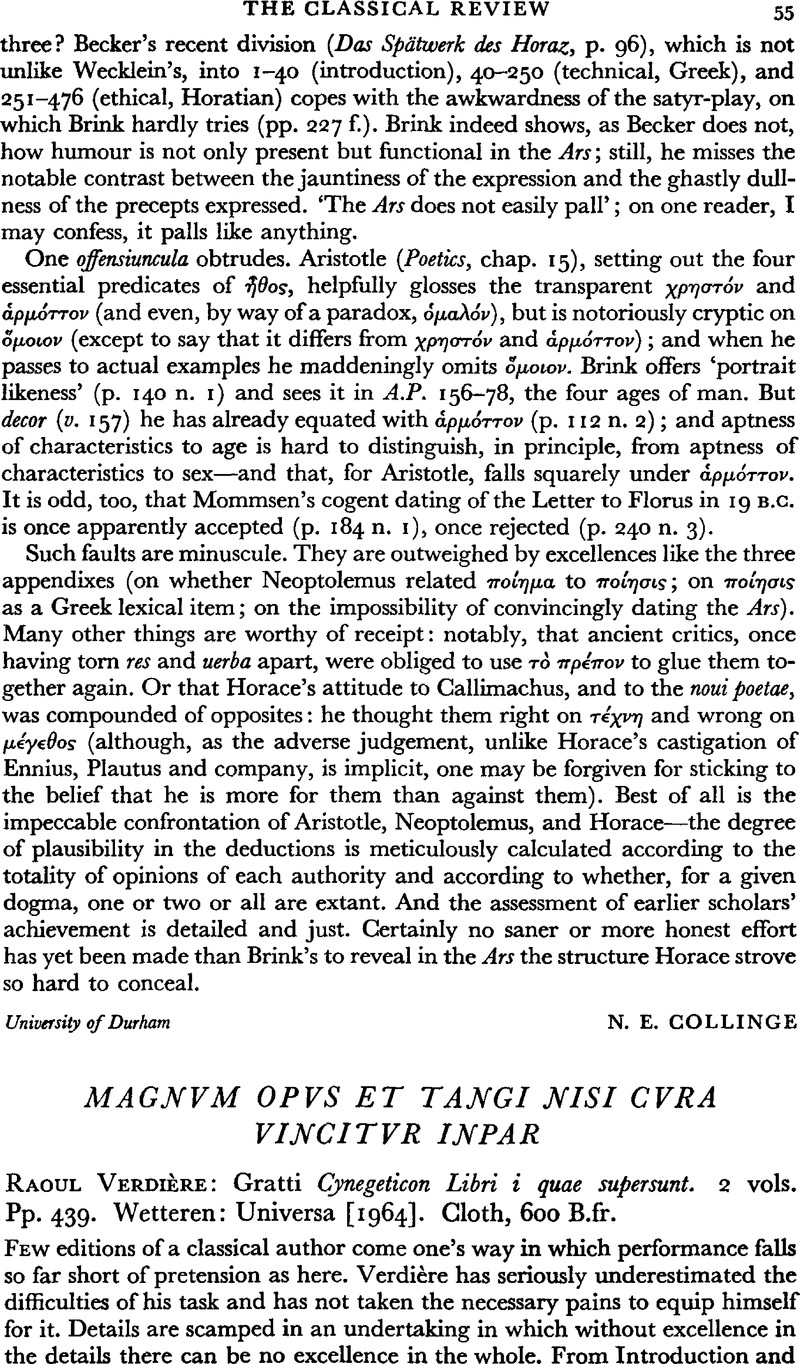Published online by Cambridge University Press: 27 February 2009

page 56 note 1 See for instance the long ‘variorum’ discussion of Ov. ex P. iv. 16. 33 on pp. 26–28; and the similar review of Grattius' literary merits on pp. 73–76—what kind of literary criticism is this? It is mostly taken en bloc from Enk, in any case.
page 56 note 2 ‘Lygdamus und Ovid. Zur Methodik der literarischen Prioritätsbestimmung’, Eranos, lviii (1960), 92–111Google Scholar; cf. ibid., pp. 281–297, Lee, A. G., Proc. Camb. Phil. Soc. N.S. V (1958–1959), 15–22.Google Scholar
page 56 note 3 If indeed this, which is Sannazaro's correction (not accepted by Verdière), is what Grattius wrote. By any interpretation the verse is odd and obscure—another indication of the direction of the indebtedness,
page 56 note 4 Cf. Marouzeau, J., Quelques aspects de la formation du latin littéraire (1949), p. 18.Google Scholar
page 57 note 1 ‘I trust that the reader now agrees that the indications of any independence in B are so shadowy that, in the face of the concrete evidence on the other side, one must concur with the eminent Traube and his successors’ (op. cit., p. 9).
page 57 note 2 If the hand of the exemplar was as troublesome as Verdière suggests, the divergences between A and B, if they were copied independently, ought to be much sharper than they are. But in any case, what evidence is there that ‘Merovingian’ manuscripts played a part in the transmission of classical texts?
page 58 note 1 These ridiculous sigla, besides degrading the (sometimes illustrious) names which they represent, do not even provide a ready identification: thus SC = Scaliger, SH = Schrader, SL = Schenkl. Verdière's employment of them is neither consistent nor accurate: e.g. at 16 he does not record that numine is in Haupt's text, in fact he says explicitly that ‘tous les éditeurs’ accept nomine.
page 58 note 2 It is in any case a silly (as well as an ugly) convention. How is one supposed to know that at 301 ‘fetae’ in the text indicates ‘faetae’ in the manuscript?
page 58 note 3 Cf. his version of 131 et magis incomptus [Steyner] superat ‘Stern’ tutoris ‘Verdière] agrestis: for a demonstration of loose thinking based on dubious premisses the accomder, panying note would be hard to beat. For instance, Virg, . Aen. vii. 751Google Scholarfronde super galeam et felici comptus oliua is apparently the foundation for a statement (pp. 256–7) that ‘i’ olivier de culture chez Virgile est appelé comptus’ (I say ‘apparently’, since he also appeals to Aen. viii. 116, 128—equally fatuous citations).